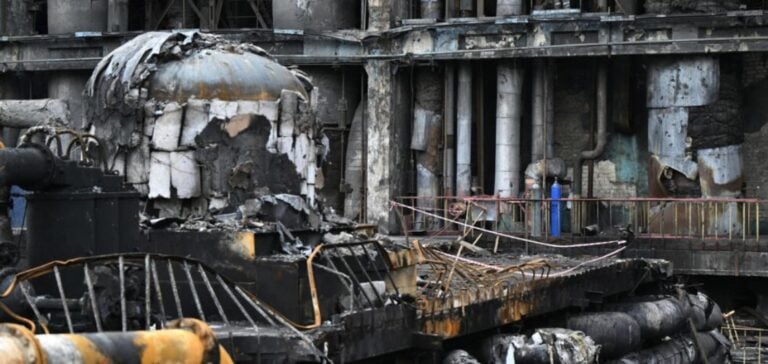A “massive missile attack” orchestrated by Russia recently hit Ukraine, specifically damaging the energy sector, according to President Volodymyr Zelensky, speaking on Saturday. This series of attacks follows several similar waves in recent weeks. These are forcing Ukraine to adopt consumption restrictions and increase electricity imports from the EU (European Union). Zelensky also renewed his call for rapid Western support in anti-aircraft systems, specifically Patriot systems. “Ukraine needs seven (Patriot) systems – and that’s the minimum. Our partners have these Patriots,” he insisted.
Impact and defense
Ukrainian Energy Minister Guerman Galushchenko reported significant “damage” in the Dnipropetrovsk, Ivano-Frankivsk and Lviv regions. These regions, close to the borders of the European Union, are hundreds of kilometers from the front lines. The Ukrainian army reported that of the 34 Russian missiles aimed at the country, 21 were shot down. “We have managed to shoot down some of them. But the world has every opportunity to help shoot down the totality of Russian missiles and drones,” added Zelensky.
Emergency measures and rationing
The private Ukrainian operator DTEK announced that four of its thermal power plants had been “seriously damaged” by the night strikes. State operator Ukrenergo took the precaution of disconnecting its main power line in the west of the country, and reiterated its call to all Ukrainian users to limit their electricity consumption. “The industry is being asked to maximize electricity imports and use alternative sources,” Ukrenergo added in a statement.
Ukrainian strategic counterattacks
In response, Ukraine carried out a massive drone attack overnight on Russia’s southern Krasnodar region, specifically targeting two oil refineries in Ilsky and Slaviansk, as well as a military air base. These sites, described as “key technological installations”, have suffered significant damage, according to a Ukrainian defense source told AFP. Russian officials in the Krasnodar region reported a fire at the Slaviansk-on-Kuban refinery, which had to halt operations.
Ongoing attacks on Ukrainian infrastructure and Ukraine’s strategic responses demonstrate an intensification of infrastructural warfare that could have lasting repercussions on regional and international energy security.






















